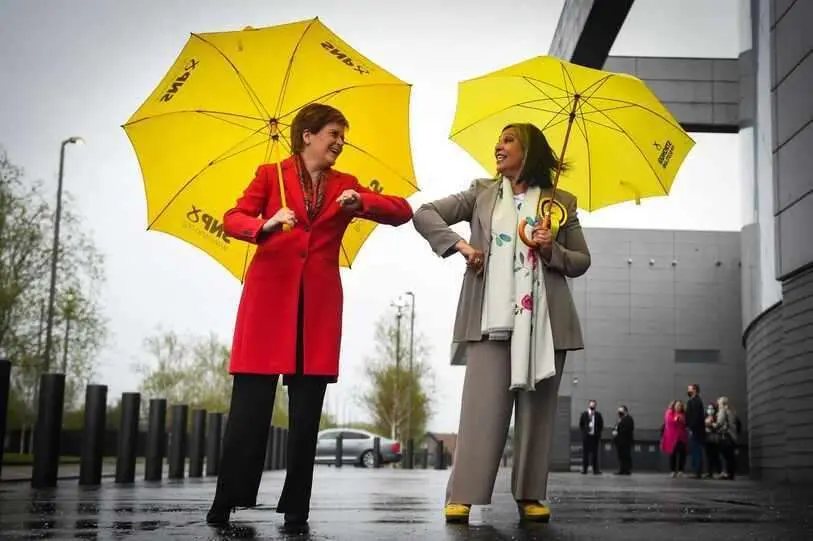Scottish temptation

Only one seat separates the Scottish Nationalist Party (SNP) from an absolute majority in its devolved parliament. In total, the party led by Nicola Sturgeon has collected 64 seats, an overwhelming victory in any case, based largely on the promise to call a referendum on independence. A promise also shared by the eight MPs won by the Green Party, thus confirming the sustained upward trend of the ecologists in all European general and regional elections.
Barring a telluric cataclysm, it is by no means foreseeable that these two formations will succumb to the voices suggesting that if London does not agree to negotiate the holding of a new referendum, then it will do so by the illegal and illegitimate "Catalan way", that is to say by bypassing all constitutional laws. The previous referendum in Scotland, held in 2014 after the even more overwhelming victory of the former SNP leader, Alex Salmond, was authorised, in accordance with institutional provisions, by the Westminster Parliament, which is the holder of powers in all matters concerning legislation and relations between the different nations that make up the United Kingdom.
In that consultation, 55% of Scots heeded the slogan "Better together" with which David Cameron's government convinced them not to become independent. Decisive in that campaign was the speech of another Scotsman, former Prime Minister Gordon Brown, who finally decided them to stay by means of a promise combined with a threat: "Together we would be better off, of course, but if you secede, know that you will also leave the European Union".
That is precisely the big difference between now and 2014. The United Kingdom, and Scotland within it, has left the EU, a decision that, while adopted by a narrow margin (52 to 48%) in the country as a whole, had a lacerating exception in Scotland: 62% voted against Brexit. In short, that result was accepted on the basis of a fundamental premise: to remain in the UK was also to remain in the EU.
The head of government and the SNP is now wielding the breaking of this commitment as the fundamental argument for holding a new consultation that takes into account the new and far-reaching circumstances. A claim that has already been flatly rejected by the promoter of Brexit and current British prime minister, Boris Johnson, who now, after learning the results of the Scottish elections, describes the attempt to promote a new independence referendum as "irresponsible and reckless".
However, the British Conservatives will have to make many efforts to prevent such a referendum from taking place. True to the law, the Scottish nationalists believe that, once the regional elections have been held and the existence of a majority in favour of holding a new referendum has been proven, the courts will be responsible for settling the differences between London and Edinburgh if there is no political agreement beforehand.
For Europe, the situation is one of expectant tension. The departure of the United Kingdom from its midst tends to increase sympathy for Scotland, a country that claims to feel deeply European and which, logically, wants to rejoin the EU, from which it left against its majority will. But it would be a major mistake for Brussels or other capitals of one or more of the states that make up the Union to support such a split if it were not agreed between the British, especially between London and Edinburgh, let alone by means of a Catalan-style coup. It would be a very bad example for the nationalists with secessionist impulses who live in many European regions, from Spain to Sweden, via France, Belgium, Germany and Italy.
As collateral victims of these Scottish elections, the Labour Party, once the hegemonic party north of the Highlands, has to be singled out. It is paying dearly for its ambiguity, both before with Brexit and now with regard to the independence referendum. This setback is a step backwards in the career of Keir Starmer, who was trying to establish an incipient leadership to confront Boris Johnson. For the moment and after this defeat, it does not look like it will be Starmer and Labour that will dislodge him from 10 Downing Street.

